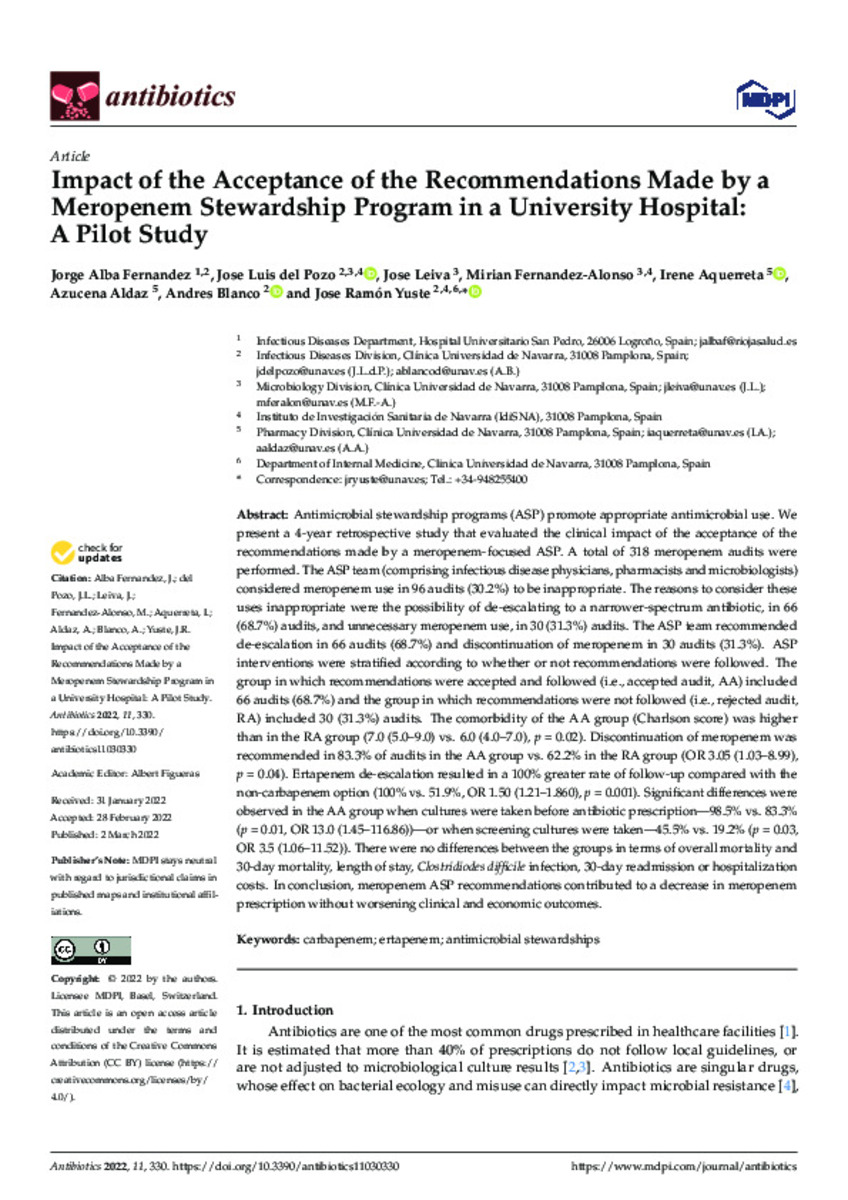Impact of the acceptance of the recommendations made by a meropenem stewardship program in a university hospital: A pilot study
Keywords:
Carbapenem
Ertapenem
Antimicrobial stewardships
Note:
This article is an open access article
distributed under the terms and
conditions of the Creative Commons
Attribution (CC BY) license (https://
creativecommons.org/licenses/by/
4.0/).
Citation:
Alba-Fernández, J. (Jorge); Del-Pozo, J.L. (José Luis); Leiva, J. (José); et al. "Impact of the acceptance of the recommendations made by a meropenem stewardship program in a university hospital: A pilot study". Antibiotics. 11 (3), 2022, 330
Statistics and impact
0 citas en

Items in Dadun are protected by copyright, with all rights reserved, unless otherwise indicated.








